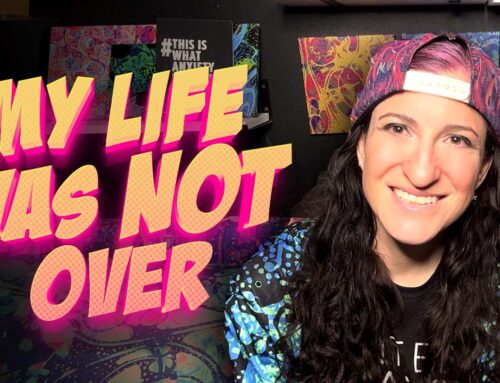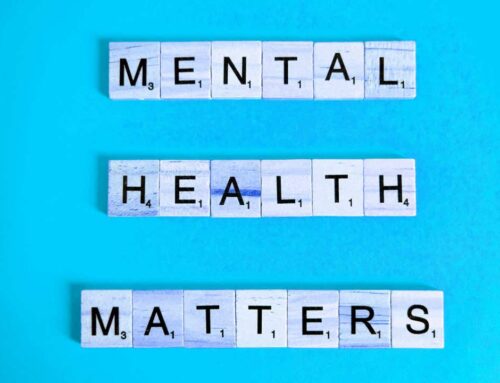Essential Resources for Individuals of All Ages Living with Schizophrenia
Schizophrenia can feel like a hopeless situation when it enters your life, or the life of someone you love. But while mental health concerns are challenging, they are not hopeless. With the right support system in place, it is possible to live a normal and fulfilling life, even while suffering mental health challenges.
Unfortunately, identifying those resources can sometimes prove challenging—particularly for those who are currently suffering the ravaging effects of schizophrenia.
In this article, we aim to provide assistance by detailing a list of essential resources for people of all ages living with schizophrenia.
-
National Alliance on Mental Illness (NAMI)
The National Alliance on Mental Illness (NAMI) is a USA-based organization dedicated to supporting individuals and families affected by mental illnesses, including schizophrenia. Their mission is to provide those suffering from the impacts of mental illness with as many support materials as possible in order to help develop a further sense of inclusion for everybody.
These materials can range widely, from educational documents, to help hotlines, support groups, and even general mental health advocacy.
-
Therapy Apps for Schizophrenia
While it may be natural to feel skeptical that a phone application will be up to the task of providing relief from schizophrenia, there are many people who have experienced life-changing results from finding and using the right application.
Below, we include several popular examples, all of which include resources that are specific for people who are suffering from schizophrenia. However, this list is by no means comprehensive. If you are considering a phone application as one way to help handle your schizophrenia, shop around a little bit to find one that you are comfortable with.
- Woebot: Woebot is an AI-powered therapy chatbot that offers Cognitive Behavioral Therapy (CBT) techniques to help individuals cope with symptoms of schizophrenia. It provides personalized support, tracks moods, and offers exercises to improve emotional well-being.
- Talkspace: Talkspace is an online therapy platform that connects individuals with licensed therapists via text, voice, or video chat. It can be beneficial for people with schizophrenia who may prefer remote therapy or have difficulty with in-person sessions.
- Schizophrenia Health Storylines: Schizophrenia Health Storylines is a mobile app designed to help individuals manage their schizophrenia symptoms, track their progress, and improve communication with their healthcare providers. The app allows users to record their daily experiences, mood, medication adherence, and any side effects they may be experiencing. It also provides tools for setting medication reminders, monitoring sleep patterns, and tracking lifestyle habits that can impact mental health.
Note that, while phone applications can be very helpful, they also have their limitations. No phone application should be used as a complete replacement for other forms of therapy and treatment.
-
Schizophrenia.com Forum
The Schizophrenia.com Forum is an online community where individuals with schizophrenia, their family members, and caregivers can connect and share their experiences. There are millions of people suffering from schizophrenia all over the world.
However, you may not always connect with them in everyday life, which can result in feelings of isolation and depression. Forums like the one described above give schizophrenia sufferers and their families a much-needed space for community that would be difficult to acquire without digital technology.
-
Active Minds
Schizophrenia is often diagnosed as people enter adulthood—particularly as they experience moments of significant stress. Unfortunately, this means that some of the most alarming early signs of schizophrenia emerge when the individual is on their own for the first time—college.
Active Minds is a non-profit organization that focuses on mental health advocacy and education among college students. They have chapters on many college campuses that organize events, discussions, and support groups related to mental health, including schizophrenia.
-
College Mental Health Services
Of course, Active Minds is not the only student-based organization. Many colleges and universities provide mental health services and counseling centers to support students’ emotional well-being. Students with schizophrenia can access these resources for individual counseling, group therapy, and psychiatric support tailored to their unique needs.
If you are a college student who feels that they need their mental health evaluated, reach out to your college’s mental health services to find out what type of support they are able to provide. While some universities will be able to offer more help than others, all will be familiar with the needs of students who are experiencing some form of mental health distress.
Taking Care of Yourself
Keep in mind that all of the recommendations included in this article are designed to help you handle your condition. However, they are not designed to replace the existing recommendations of your mental health team.
Ultimately, the most impactful support will come in the form of professional recommendations, and (potentially) medication. It is important to speak with the mental health professionals in your life before making any meaningful changes to your general self-care routine.
That said, you should also feel empowered to advocate for yourself based on what you think will make a difference. While treatment is a complicated process, it’s always best when the patient feels confident and comfortable with the treatment regimen.
The recommendations supplied above are free or affordable ways for you to supplement your support and connect with resources that make the most sense to you.





